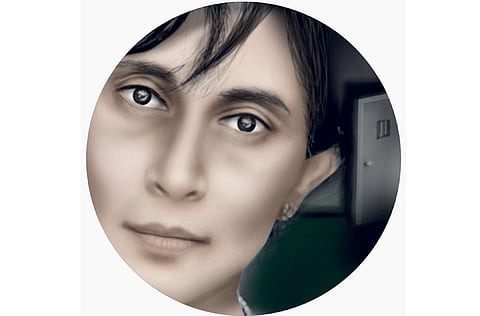Why Suu Kyi needs to fear the future
Freeing the Nobel Peace Prize laureate isn't a gesture of goodwill by Myanmar's generals — it's a calculated risk

Myanmar's Nobel peace laureate and democratic leader, Aung San Suu Kyi, is free at last. Her release will no doubt raise hopes and expectations. She is not just the leader of her own party, the National League for Democracy; Suu Kyi is also regarded as the national leader in Myanmar.
In her absence, critics inside and outside of Myanmar privately or openly questioned her relevance and popularity, suggesting that she no longer represented a majority of Myanmarese people. They were wrong.
Britain's Yangon ambassador, Andrew Heyn, has the answer: "As for her relevance, all the evidence points to a regime that still fears that she is very relevant." Myanmar's oppressed citizens have not forgotten her.
Show support
Since the news of her imminent release reached residents in Yangon, many Myanmarese, including the younger generations who have never seen her in person, bravely flocked into her party headquarters to show support and walked to her lakeside house, chanting and waiting for her release in spite of the presence of the troops and riot police.
The question now is how she will confront challenges and the new political landscape in her country. The political challenges that Suu Kyi will face will be very much different from what she encountered during the two previous times she was freed from house arrest, the first in July 1995 and the second in May 2002.
The regime has just held a general election and rigged the votes and will soon claim "victory" with an improbable 80 per cent of the vote.
The regime will form a new government and convene parliament. But Suu Kyi won't be sitting there.
So the generals may think they have sidelined her effectively. This calculation could be wrong.
Myanmar's sullen military leaders have taken a political risk to free the immensely popular democracy leader, but they might have also thought that, since they are in full control of the situation in the country and secured their role in future politics, her freedom was a risk worth taking. However, Suu Kyi could remain a thorn in the side of the regime.
Despite its views and values, the government of Myanmar has no shortage of friends around. The Association of South East Asian Nations (Asean) said the election was a "significant step forward".
Asean's Vietnamese chair said in a statement published by the Vietnamese state media on Tuesday: "Asean encourages Burma [Myanmar] to continue to accelerate the process of national reconciliation and democratisation for stability and development in the country." China offered full backing to the election.
Symbol
Suu Kyi's non-violence struggle also won friends and admirers around the world and she remains a symbol of democratic struggle in Myanmar.
She has been asking her captors to have a meaningful political dialogue, but the past meetings between the regime leaders and Suu Kyi have reached nowhere. Instead she has been locked in and locked out again and again.
It is believed that Suu Kyi will continue to call for political dialogue; she will also call for the regime to free more than 2,000 political prisoners who remain behind bars.
More importantly, she will play a pivotal role in reconciling and restoring the unity of ethnic nationalities. Indeed, prior to her release Suu Kyi was interested in the second Panglong Conference, the first one was held in 1947, a year before the country regained its independence from Britain.
At the conference, led by her father, several ethnic leaders formed a united front for independence.
Since Suu Kyi can win the trust of the divided ethnic nationalities in Myanmar, the second Panglong Conference is as important as the first. The question is whether the regime will allow it to take place.
Suu Kyi wants to find a way to lift the international economic sanctions and is in favour of international humanitarian aid going into Myanmar and border regions. However, the question is how the regime will react to her olive branch.
Lastly, her supporters and party members have also expressed great concern for her safety.
They know that the regime will remain unfriendly to Suu Kyi in spite of the release, this is not a gesture of goodwill from the regime, who have cooked up several charges against her in the past to lock her up. What they don't want is for her to be Myanmar's Benazir Bhutto.
— Aung Zaw is founder and editor of the Irrawaddy magazine based in Chiang Mai, Thailand.


